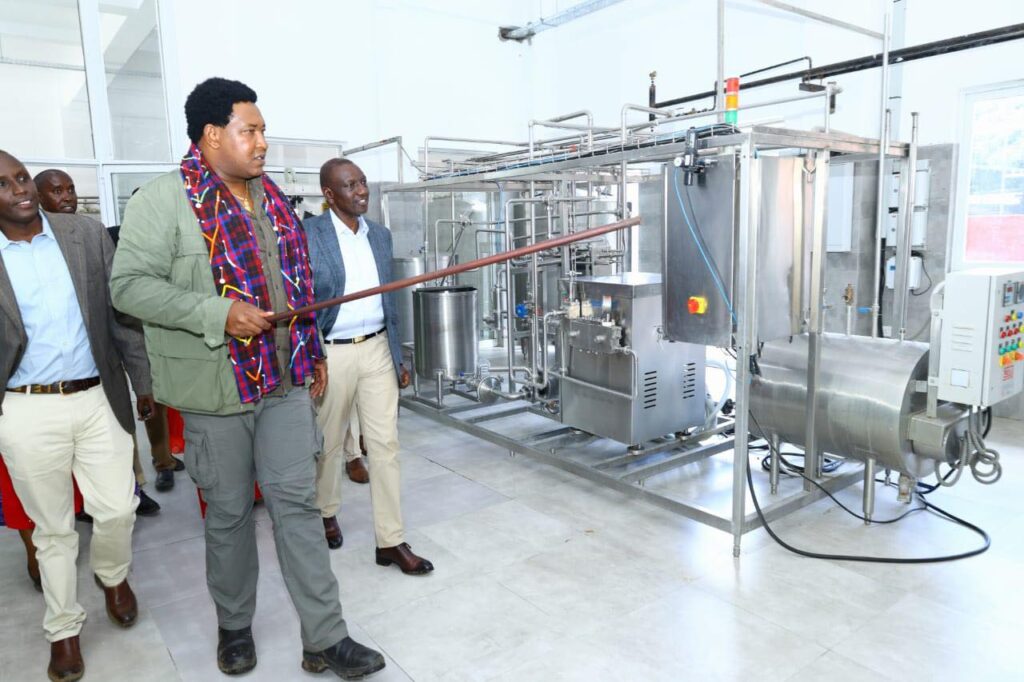The Kenyan government has rolled out a Sh1.45 billion milk coolers initiative aimed at revitalizing the country’s dairy sector through enhanced value addition, better storage, and reduced post-harvest losses.
Speaking in Nyeri during the flag-off of an additional eight bulk milk coolers to farmer cooperatives, Agriculture and Livestock Development Cabinet Secretary Mutahi Kagwe emphasized that the project is a critical step towards commercializing smallholder dairy farming. The initiative, which will see 230 coolers distributed across 40 counties, is expected to increase the national milk chilling capacity by 475,000 litres daily, directly and indirectly supporting over 2 million people.
Originally launched by President William Ruto in Meru County last month with the distribution of 15 coolers, the project falls under the Livestock Value Chain Support Project. Its primary objective is to transition farmers from subsistence to commercial practices by strengthening cooperative milk handling systems and improving storage infrastructure.
Kenya produced an estimated 5.3 billion litres of milk in 2024, with smallholder farmers contributing about 80 per cent. However, post-harvest losses remain a challenge, with approximately six per cent of marketed milk—equivalent to 175 million litres valued at Sh7.9 billion—lost annually due to poor storage and handling.
Kagwe stated that the initiative aligns with the government’s Bottom-up Economic Transformation Agenda, which targets the export of 1 billion litres of milk annually, the creation of 500,000 jobs, and doubling milk production to 10 billion litres by 2027.
The CS also highlighted the importance of tackling key sector challenges such as inadequate breeding stock, low productivity, poor infrastructure, and climate change. Among the strategies underway are leasing public land for pasture and fodder production, enhancing the supply of quality sexed semen, and implementing a mass livestock vaccination campaign.
“The dairy sector is a cornerstone of Kenya’s agricultural economy, contributing four per cent to the GDP. With strategic investment and collaboration, we can unlock its full potential,” Kagwe said.
The project is expected to empower dairy cooperatives, improve milk quality, reduce losses, and open up international markets for Kenyan dairy products.

